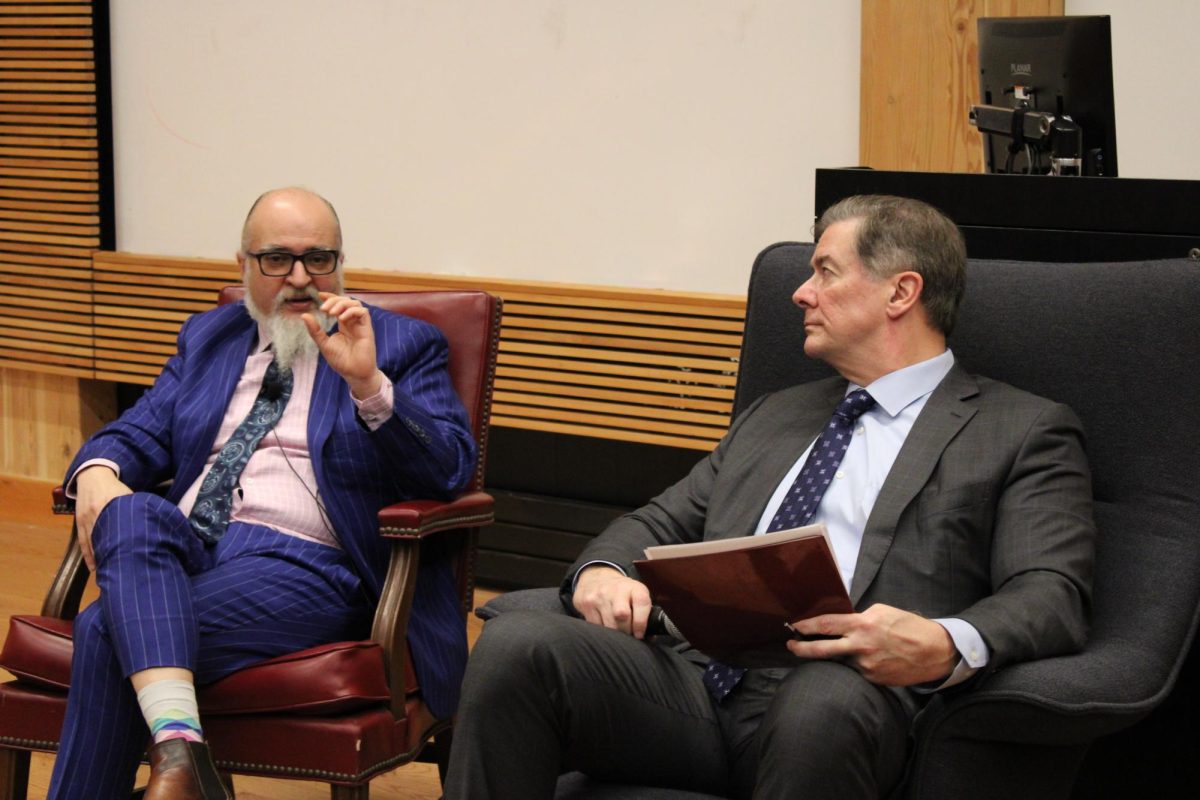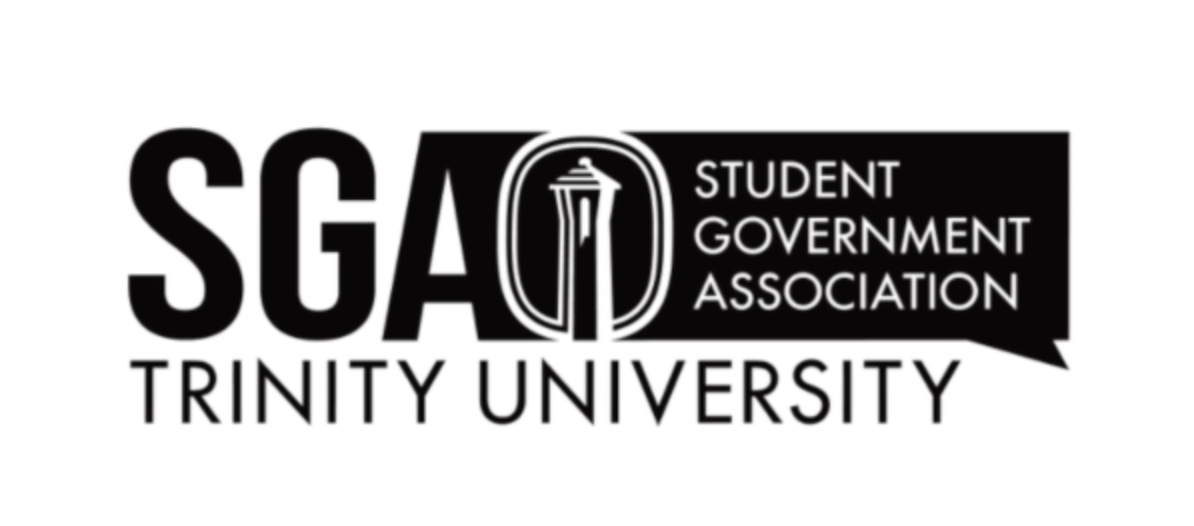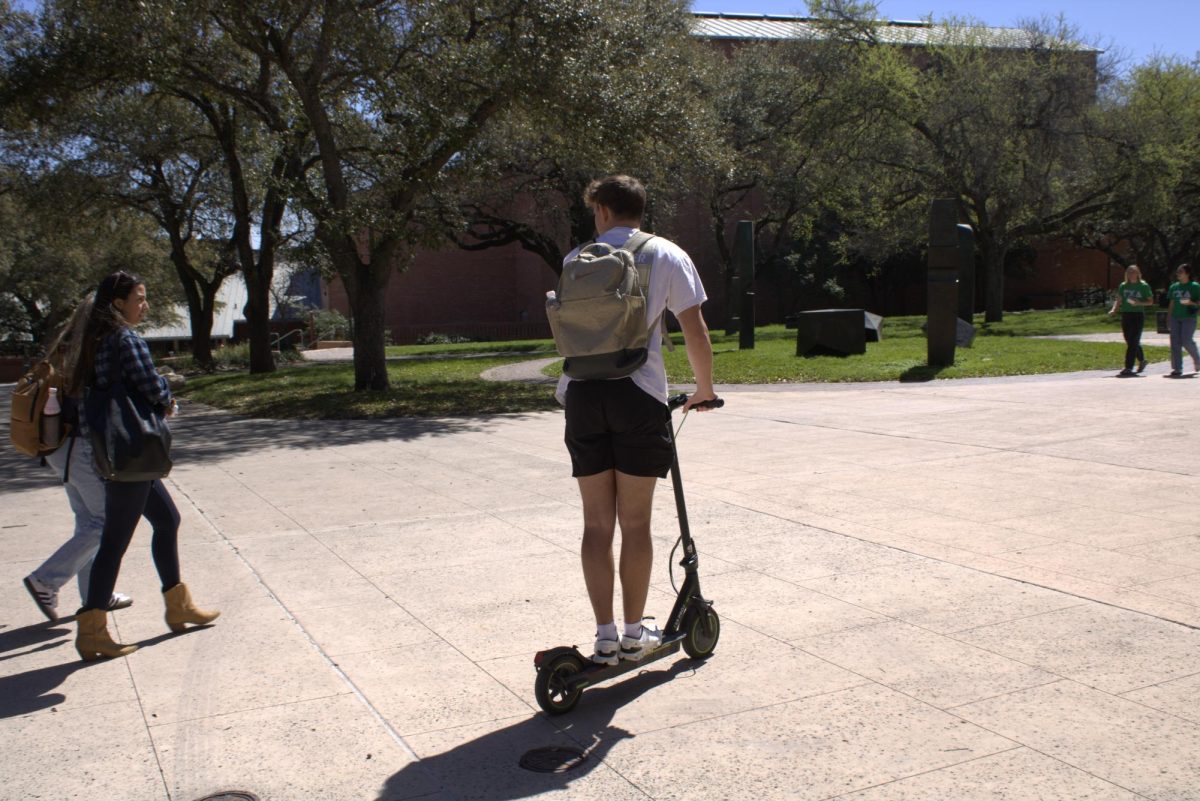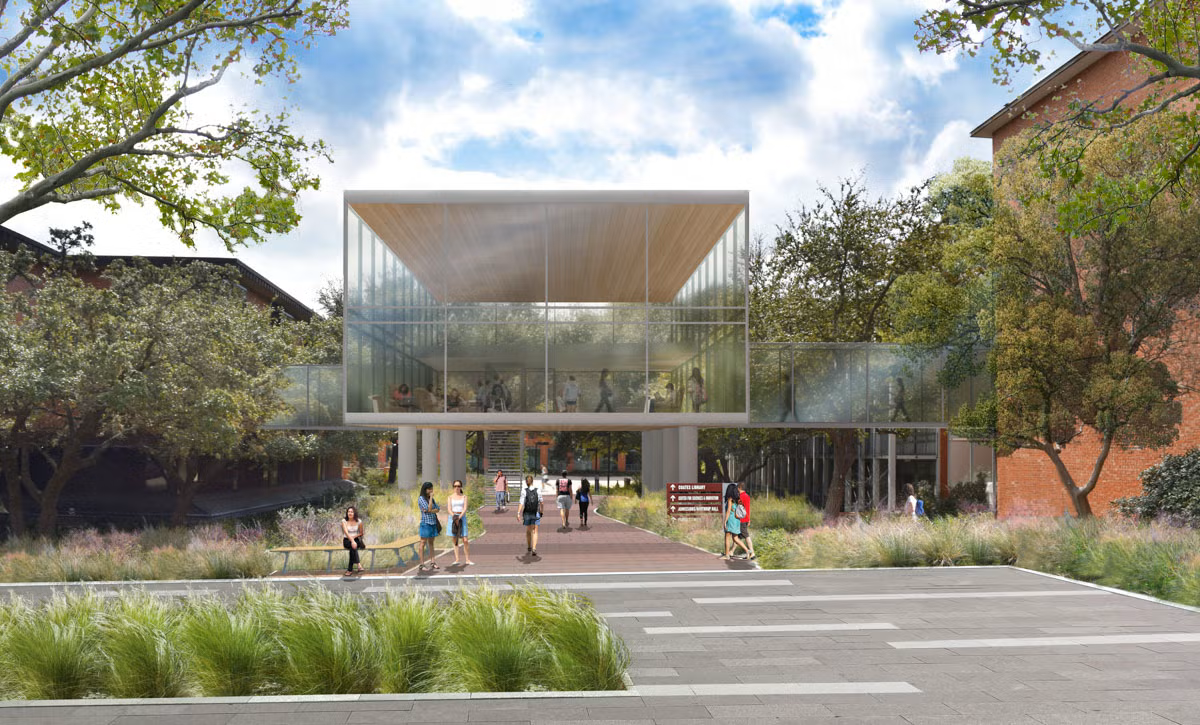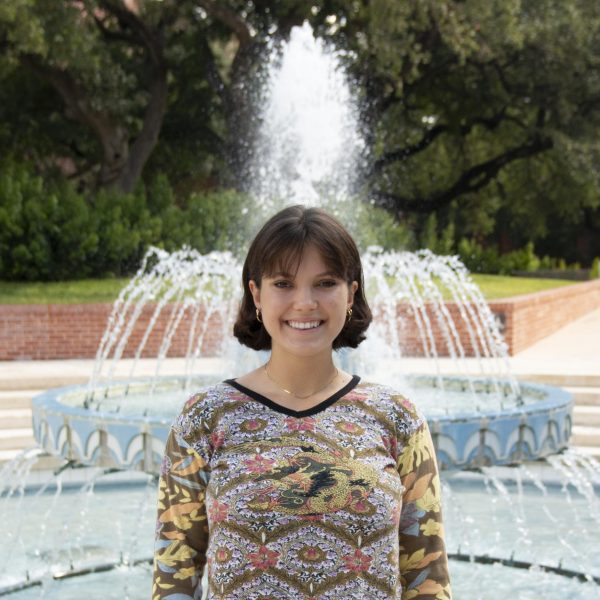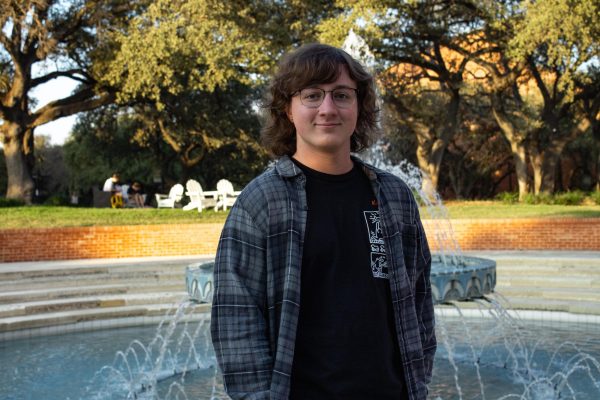On Feb. 17, Trinity’s Hillel chapter held “Is Peace Possible?” a discussion moderated by Trinity professor David Lesch between David Makovsky and Ghaith al-Omari, two political scientists specializing in Middle East politics. The event posed the question “Is peace possible between Palestine and Israel?” and approximately 40 Trinity students and staff members attended along with the San Antonio community. Around 10 members of Trinity’s chapter of the Young Democratic-Socialists of America protested outside Dicke Hall before the event.
Makovsky and al-Omari said that peace was possible between Israel and Palestine. The biggest obstacle in doing this, they argued, was getting the opposing sides to understand each other. Makovsky explained that because neither side acknowledges their opponent’s legitimacy to the land, finding common ground both sides can agree to is difficult.
“Each side has to acknowledge that the other side has deep roots in the land,” Makovsky said. “Somehow each side sees that the acknowledgment of the other side has a valid claim, as undermining their own claim to the land. And this makes it so hard, the sense of not acknowledging the legitimacy of the other side’s claim.”
The speakers addressed the idea of a two-state solution. While they both recognized it to be a solid solution to the conflict in theory, a two-state solution would be much harder to achieve in practice. As al-Omari explained, in the current political situation, the region is not stable enough to create two functioning states.
“I think it’s the only solution that addresses the core nature of this conflict,” al-Omari said. “[Palestine and Israel] each want a state where they can express their national identities. Israel as a Jewish state to express Jewish identity, Palestine as a Palestinian state to express Palestinian identity. And you can only do this through a two-state solution … The challenge, of course, is it is the only solution, but you cannot do it today, and today I don’t think you can do it because of politics. The word ‘peace’ is a great word. It is such a good word. It evokes such positive feelings. In reality, peace is scary. Peace is scary because peace entails going into the unknown.”
Finally, Makovsky and al-Omari addressed questions about the nature of the Oct. 7 attacks. Makovsky shed light on the perception of Oct. 7 from the Palestinian and Israeli sides and described the great toll that the conflict had on all people.
“In some ways [Israel] is still frozen on Oct. 7. The trauma is just so deep,” Makovsky said. “There is suffering on the Palestinian side too. This war has enacted a terrible, terrible toll on people,”
Trinity’s chapter of the Young Democratic Socialists of America held a protest outside the event. The protestors handed out posters to event attendees. The posters read “Know Before You Go,” asserting that the organization Makovsky and al-Omari work for, The Washinton Institute, is a “pro-Israel think tank” and that they are “responsible for mass amounts of disinformation, do not support free speech and actively work to silence pro-Palestine student organizations.” Brooklyn King, president of YDSA, explained that the group was protesting not to silence anyone, but to spread awareness about the speakers they felt were not being publicized.
“I think less important than protesting the event is just letting people know who is supporting the event and what information is being told to them. Because we understood that the event was being advertised as kind of like a bipartisan equal conversation about the event. But after looking at who was actually supporting and bringing the event to campus, we understood that it was actually not and it was really [a] one-sided discussion,” King said. “Having awareness about the information that you’re receiving and letting students know in advance the goals behind what’s going on is important to make informed decisions about the information you’re hearing.”
Ethan Hoss, first-year mathematics major and member of Hillel, attended the event and explained he was hopeful to learn about ways to achieve peace in the Palestine-Israel conflict. He expressed the importance of bringing a variety of opinions to Trinity’s campus.
“I’m very hopeful that this event will show that there’s a spectrum of opinions and thoughts,” Hoss said.

